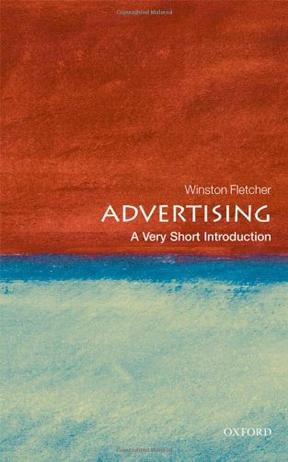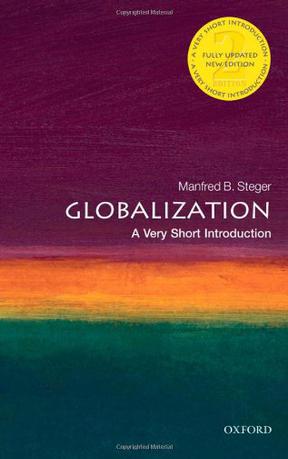-

Sexuality
Sex is everywhere in the modern world. But why is it so important to who we are? What shapes our sexuality and how does our sexuality shape us. What impact have feminism, religion, and HIV/AIDS had on our attitudes to sex? This Very Short Introduction examines these questions and more, exploring how sexual norms have changed throughout history, from self-castrating early Christians to modern-day born-again virgins, from sexual liberationists to lesbian separatists; and tackling the major controversies around sex and sexuality today: ideas on masculinity and feminity, paedophilia, gay politics, sex education, eugenics, and even the future of sex itself. -

Advertising
John Wanamaker famously observed that "half the money I spend on advertising is wasted; the trouble is, I don't know which half." Indeed, though advertising is pervasive in our society, how it works (if and when it works) is not a question most of us can answer. In this Very Short Introduction , Winston Fletcher, a seasoned advertising veteran with extensive inside knowledge, offers an illuminating look at this billion-dollar business, dispelling some of the myths and misunderstandings surrounding the industry. Fletcher offers a short history of advertising and explains how the industry works and how each of the parties--the advertisers, the media, and the agencies--contribute to the process. He also looks at the financial side of advertising and asks how today's Wanamakers know if they have been successful, or whether their money has in fact been wasted. The book concludes with a discussion of controversial and unacceptable areas of advertising, such as advertising aimed at children and the promotion of products such as cigarettes and alcohol. -

Art Theory
In today's art world many strange, even shocking, things qualify as art. In this Very Short Introduction Cynthia Freeland explains why innovation and controversy are valued in the arts, weaving together philosophy and art theory with many fascinating examples. She discusses blood, beauty, culture, money, museums, sex, and politics, clarifying contemporary and historical accounts of the nature, function, and interpretation of the arts. Freeland also propels us into the future by surveying cutting-edge web sites, alongside the latest research on the brain's role in perceiving art. This clear, provocative book engages with the big debates surrounding our responses to art and is an invaluable introduction to anyone interested in thinking about art. -

Globalization
-

Darwin
Darwin's theory that our ancestors were apes caused a furore in the scientific world and outside it when "The Origin of Species" was published in 1859. Arguments still rage about the implications of his evolutionary theory, and scepticism about the value of Darwin's contribution to knowledge is widespread. In this analysis of Darwin's major insights and arguments, Jonathan Howard reasserts the importance of Darwin's work for the development of modern biology. -

Law
Law underlies our society - it protects our rights, imposes duties on each of us, and establishes a framework for the conduct of almost every social, political, and economic activity. The punishment of crime, compensation of the injured, and the enforcement of contracts are merely some of the tasks of a modern legal system. It also strives to achieve justice, promote freedom, and protect our security. The result is a system that, while it touches all of our daily lives, is properly understood by only a few, with its impenetrable jargon, obsolete procedures, and interminable stream of Byzantine statutes and judgments of the courts. This clear, jargon-free Very Short Introduction aims to redress that balance, as it introduces the essentials of law and legal systems in a lively, accessible, and stimulating manner. Explaining the main concepts, terms, and processes of the legal system, it focuses on the Western tradition (the common law and the civil law), but also includes discussions of other legal systems, such as customary law and Islamic law. And it looks to the future too, as globalization and rapid advances in technology place increasing strain on our current legal system.